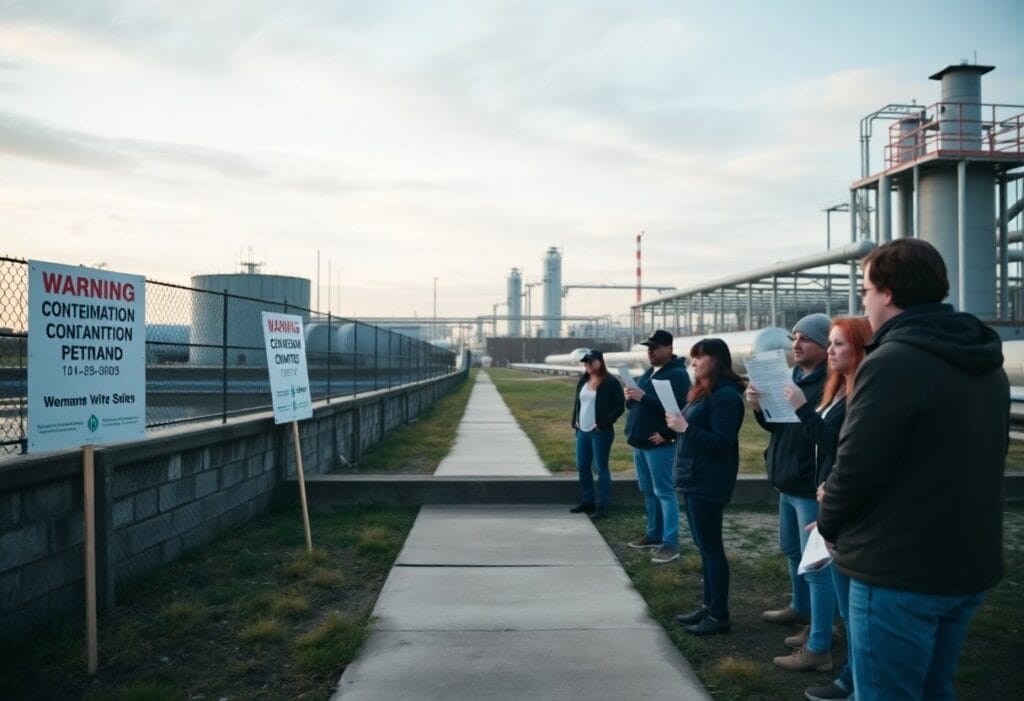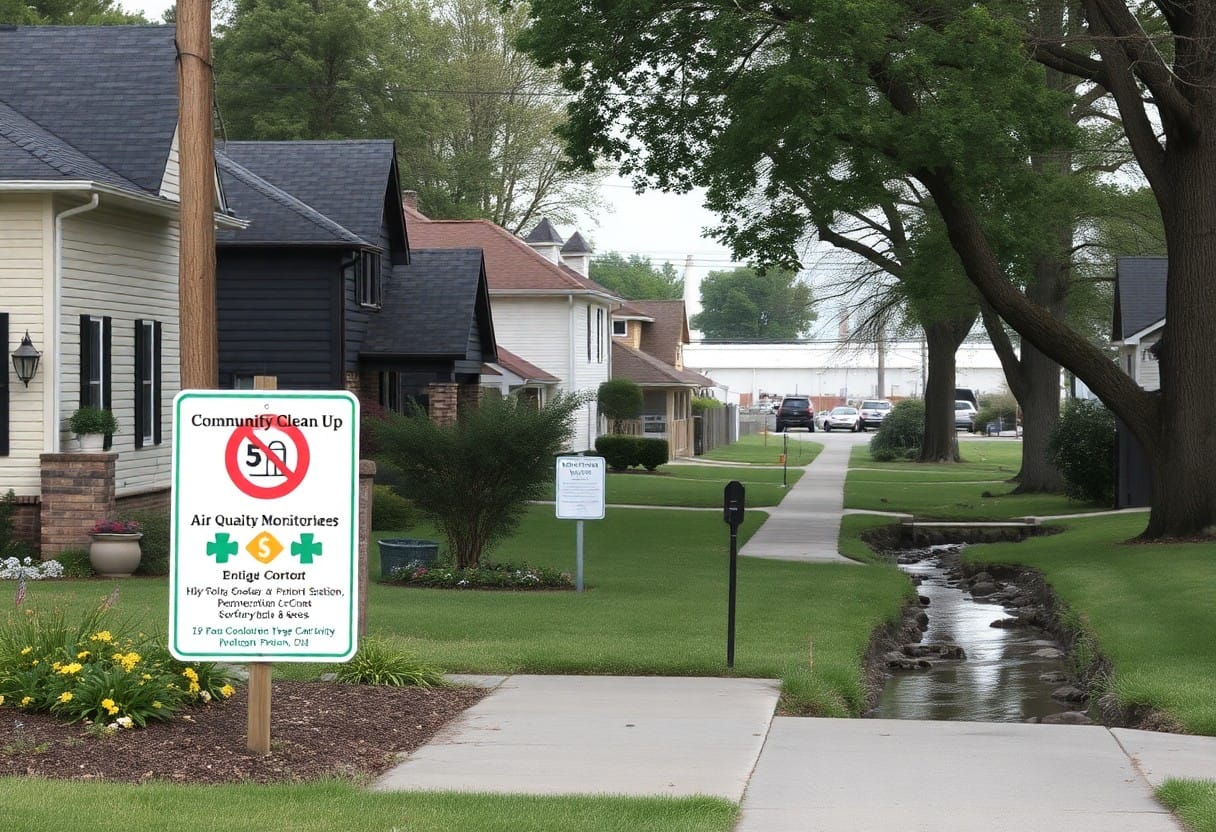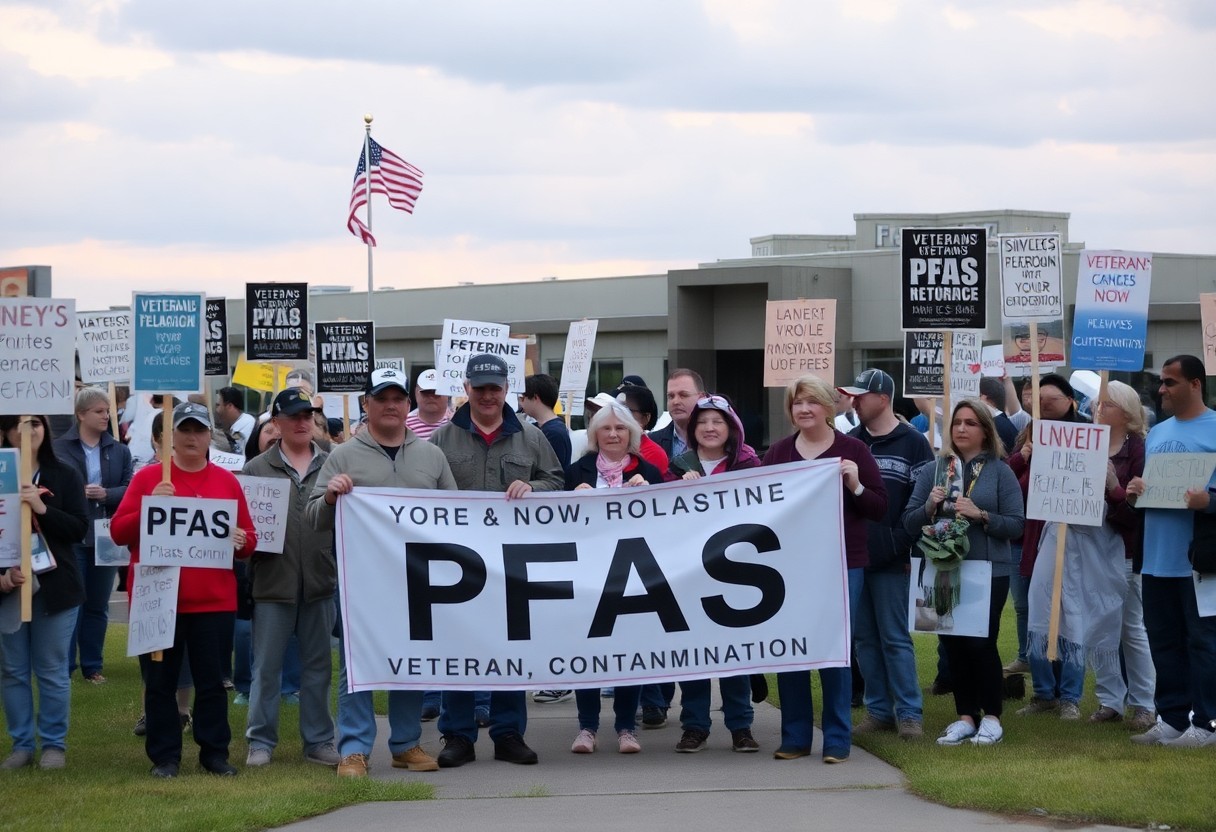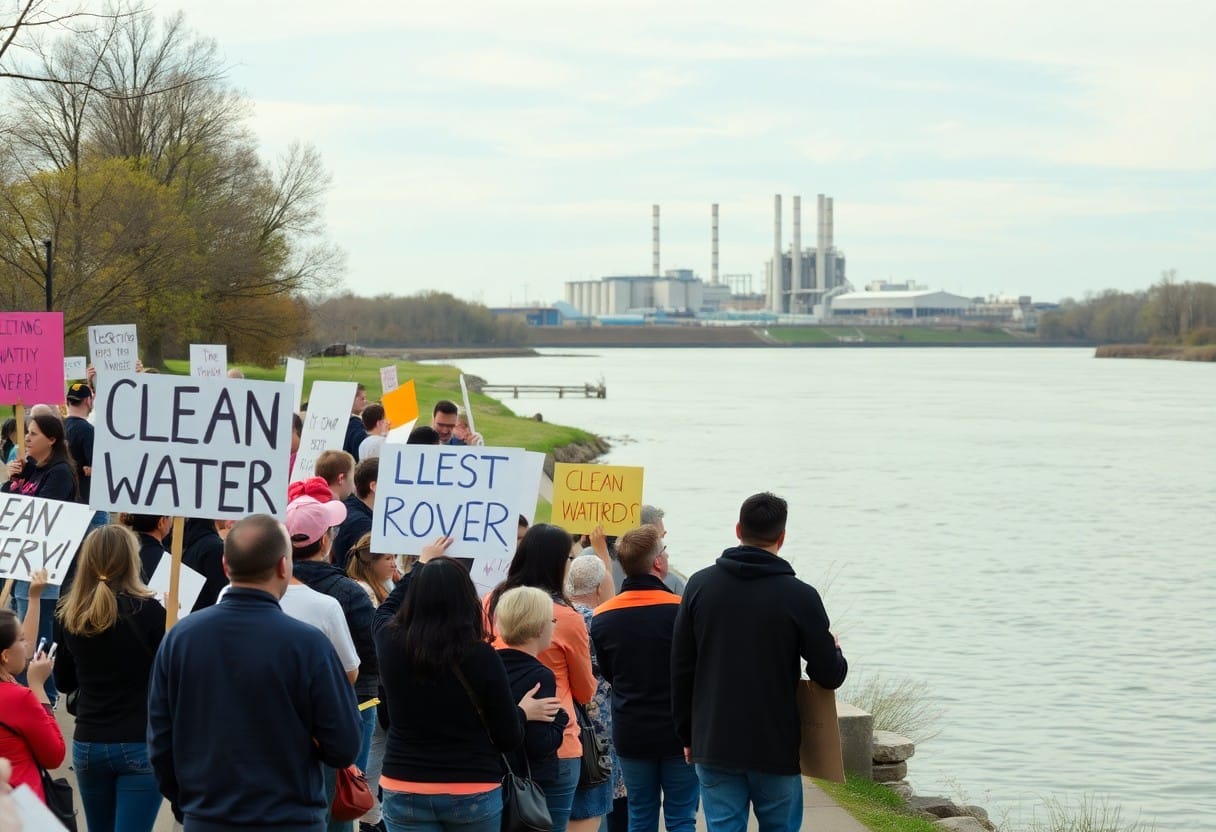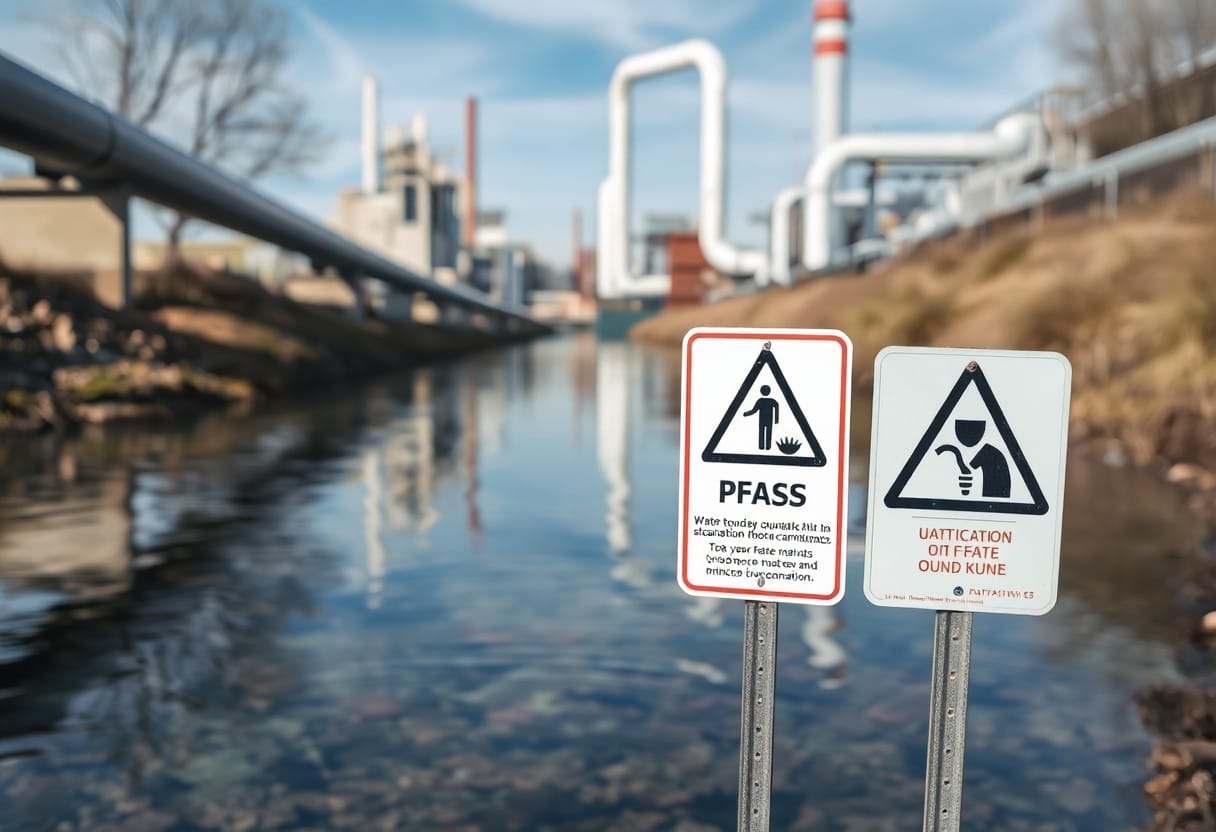Most residents in Fayetteville may not be fully aware of the serious implications surrounding the Chemours’ contaminated water crisis. Local doctors are sounding the alarm about the potential health risks associated with this pollution, urging you to stay informed about the contaminants affecting your water supply. With chemicals linked to various health concerns, your awareness and vigilance are necessary for your well-being. This post aims to provide you with the important details regarding the situation and what steps you can take to safeguard your health and that of your community.
Overview of Chemours and Contaminated Water
While the Chemours Company is known for its production of specialty chemicals, its role in the ongoing water contamination crisis has raised serious health concerns for local communities. As its facilities discharge industrial waste, you may be affected by toxic substances leaching into your water supply, highlighting the urgent need for awareness and action regarding these contaminants.
Background on Chemours
For over a century, Chemours has been a major player in the chemical manufacturing industry. Spun off from DuPont in 2015, the company has faced increasing scrutiny due to its historical production of chemicals linked to environmental degradation and health issues, particularly in areas surrounding its plants.
Impact of Chemical Contaminants
Among the contaminants associated with Chemours’ operations are per- and polyfluoroalkyl substances (PFAS), which have been linked to serious health risks. These harmful chemicals can persist in the environment and accumulate in your body, raising concerns about long-term exposure.
In fact, studies have shown that exposure to PFAS, often referred to as “forever chemicals,” can lead to significant health problems including cancer, immune system issues, and developmental concerns in children. With mounting evidence, you should be vigilant about the potential presence of these dangerous contaminants in your water supply and take steps toward resolution and health monitoring for you and your family.
Health Risks Associated with Contaminated Water
Some health risks associated with contaminated water include gastrointestinal illnesses, reproductive issues, and neurological disorders. Exposure to harmful chemicals often found in polluted water, such as per- and polyfluoroalkyl substances (PFAS), poses significant danger to your well-being. It is vital to be aware of these potential risks and monitor the quality of your water supply, as your health may be compromised by ingesting or coming into contact with contaminated water sources.
Short-term Health Effects
By utilizing contaminated water, you may experience short-term health effects like nausea, headaches, and skin irritations. These symptoms can emerge quickly after exposure, making it vital to identify and address any potential sources of contamination in your water supply.
Long-term Health Effects
On the other hand, prolonged exposure to contaminated water can result in severe long-term health effects, including cancer, liver damage, and immune system dysfunction. Understanding the implications of long-term exposure is vital for protecting yourself and your family. Your risk of developing serious health issues increases significantly if you do not take measures to mitigate your exposure. Regulating water quality and being informed about local pollution sources play vital roles in ensuring your long-term health and well-being.
Community Response to the Crisis
It is crucial for you to understand how the Fayetteville community has mobilized in response to the Chemours water contamination crisis. Local activists, concerned residents, and health professionals have come together to address the threats posed by polluted water, raising awareness and advocating for change. You may notice various grassroots initiatives aimed at educating fellow citizens about the potential health impacts and encouraging them to stay vigilant about their water quality.
Public Awareness Campaigns
After the alarming reports about contaminated water, community organizations launched targeted public awareness campaigns. These campaigns focus on informing you about the dangers of water pollution and empowering you to take action. Educational workshops, community meetings, and outreach programs aim to engage citizens and ensure they are well-informed about the risks associated with Chemours’ contaminants.
Local Government Actions
Against the backdrop of rising public concern, local government officials have taken steps to address the contamination crisis. You might see various actions, including increased water testing and the establishment of safety guidelines aimed at protecting your community. Lawmakers are working to demand accountability from Chemours and ensure sufficient resources are allocated for remediation efforts.
Local leaders have been proactive in pushing for strict regulations to hold Chemours responsible for its actions. Your local government has initiated comprehensive water testing programs to evaluate the safety of drinking water, ensuring that potential hazards are identified quickly. Additionally, they have sought to secure state and federal funding for cleanup and educational programs to inform you about water safety. By advocating for stronger policies and community support, local officials aim to protect your health and restore confidence in your water supply.

Recommendations from Fayetteville Doctors
To protect your health and well-being during the ongoing water contamination crisis, Fayetteville doctors emphasize the importance of staying informed and following their recommendations for safe water consumption and lifestyle choices.
Testing and Monitoring Water Quality
To ensure you and your family are safe from contaminated water, it is vital to regularly test and monitor your household water supply for harmful substances, including PFAS and other pollutants.
Preventative Measures for Residents
Besides testing your water, you should adopt preventative measures to mitigate potential health risks associated with contaminated water in your area.
In addition to regular water testing, you can use activated carbon filters in your home to reduce harmful contaminants in your drinking water. It is also advisable to consume bottled water, particularly for cooking and drinking, until your water supply is deemed safe. Staying informed about local water quality reports and advocating for community action on water safety will help protect you and your loved ones from health risks associated with the contamination. Always prioritize safe water practices to minimize potential exposure to dangerous chemicals.
Legal and Environmental Implications
After the alarming discovery of water contamination linked to Chemours, legal and environmental implications have gained heightened attention. Residents and advocacy groups are pressing for accountability, as reported in the article Forever chemicals, forever concerns: Cape Fear River and …. The contamination not only poses serious health risks but also affects the local ecosystem, prompting concerns about the long-term impacts on both human and environmental health.
Lawsuits Against Chemours
Below is a growing wave of lawsuits filed against Chemours, as residents seek justice for the harm caused by contaminated water. Many individuals report health issues directly linked to exposure, and these legal actions aim to hold the company accountable for its practices and the resultant environmental damage.
Regulatory Response and Oversight
One significant aspect of the response to the Chemours situation involves heightened regulatory scrutiny. State and federal agencies are reviewing existing regulations to enforce stricter guidelines on per- and polyfluoroalkyl substances (PFAS). You should note that this increased oversight aims to better protect your community from future contamination and promote transparency in water safety.
Even though regulations are tightening, the response has highlighted the urgent need for action against PFAS to ensure your water supply remains safe. Increased monitoring and stricter enforcement of environmental laws are now priorities, reflecting the ongoing commitment to addressing contamination issues comprehensively. It’s vital for the local agency to work with community interests to develop policies that effectively mitigate the impact of pollutants, ensuring a healthier environment for you and future generations.
Future Outlook for Fayetteville
Despite the ongoing concerns surrounding Chemours’ contaminated water crisis, there is a sense of hope in Fayetteville. Community leaders, healthcare professionals, and environmental organizations are increasingly rallying together to address these pressing issues. Their collective efforts aim to ensure that you have access to safe drinking water and a healthier future for the region.
Clean-up Efforts
After years of contamination, various stakeholders have initiated clean-up efforts to mitigate the impact of toxic pollutants in Fayetteville’s water supply. Local governments and federal agencies are working tirelessly to implement remediation strategies that can restore the quality of your water while safeguarding public health.
Long-term Solutions to Water Quality
Behind the immediate clean-up efforts, long-term solutions are being explored to enhance water quality in Fayetteville. The focus is on sustainable practices and advanced technologies to ensure that your water remains safe for years to come.
Understanding the importance of sustainable water management is key to safeguarding your health. Clean drinking water is imperative, and innovative filtration systems and regulatory measures are being developed to combat contamination. Government initiatives are working on state-of-the-art technologies that can effectively remove harmful chemicals while promoting environmental sustainability. This multifaceted approach aims to not only address the immediate concerns but also assure you that your water quality will remain a priority moving forward.
Summing up
From above, it’s clear that the situation surrounding Chemours’ contaminated water crisis in Fayetteville poses significant health risks. As you navigate this issue, staying informed about the potential impacts on your water supply is crucial. Local doctors emphasize the importance of understanding the dangers of tainted water and how it can affect your health. Make sure to stay updated with developments related to this pressing matter, including information on testing in your area. For more insights, check out Tainted fruit, toxic water: Chemours’ pollution spreads far ….


